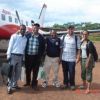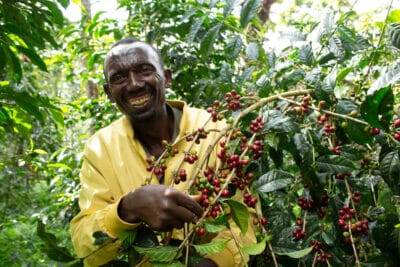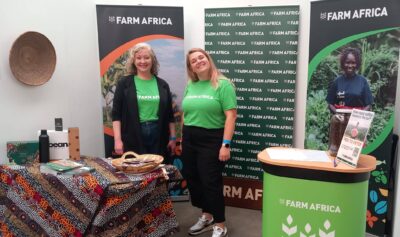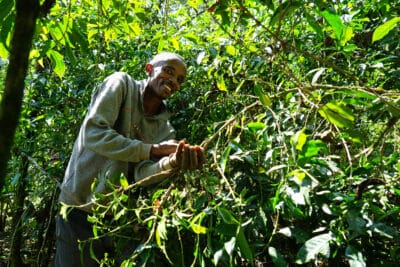News
3 July 2012
Exchange visit to Brazil pays off for Farm Africa Ethiopia staff

 Staff from Farm Africa’s Staff Ethiopia office have just returned from an incredibly valuable exchange trip to the Amazon Rainforest where they studied the measures being taken by forest communities there to promote sustainable development through reducing deforestation.
Staff from Farm Africa’s Staff Ethiopia office have just returned from an incredibly valuable exchange trip to the Amazon Rainforest where they studied the measures being taken by forest communities there to promote sustainable development through reducing deforestation.
Our staff were part of a larger delegation from Ethiopia that travelled to Brazil at the invitation of the Institute for Conservation and Sustainable Development (IDSAM), and were in the heart of the rainforest as world leaders gathered for the Rio+20 Conference.
The visit was an immensely valuable learning experience for the Farm Africa team which is undertaking similar sustainability work with forest communities in the Bale Mountains of Ethiopia. The Ethiopian delegation visited the Greener Apui “Reducing Emissions from deforestation and Forest Degradation (REDD) Project” in the Apui municipality of the Amazonas Region.
What is REDD?
REDD is an international scheme which aims to limit carbon emissions by reducing deforestation. Trees breathe in carbon dioxide and breathe out oxygen, making them one of the most efficient systems for capturing and storing carbon dioxide. It therefore makes huge sense to increase the number of trees so that more carbon is ‘locked up’ in trees, thereby limiting the amount of carbon dioxide in the atmosphere which in turn reduces the effects of climate change.
How is Farm Africa working with REDD?
Along with its Ethiopian partners, Farm Africa is busy preparing to implement one of the world’s largest REDD projects over approximately 500,000 hectares of forest in the Bale Mountain region of Ethiopia, home to Africa’s largest Afro-alpine habitat. The Farm Africa REDD project will fall within a larger programme, the Bale Eco-Region Sustainable Management Programme, and will develop income-generating activities for communities living in Bale’s forests that do not involve felling timber. These will include coffee-growing, beekeeping and tree nurseries. The visit to the Apui REDD project was a hugely important part of Farm Africa’s preparation for implementing its Bale REDD project next year.
What did Farm Africa learn in Brazil?
The Apui REDD Project aims to restore 1500 hectares of Amazon rainforest and to conserve a further 10,000 hectares under REDD activities. The Apui REDD activities that Farm Africa witnessed included reforestation and nursery management. It is estimated that this work will contribute to avoiding up to 2.1million tonnes of carbon emissions.
And perhaps the most valuable aspect of the exchange visit were the meetings and discussions they had with local government officials, forest communities and NGOs, all of whom were able to provide insights into implementing a REDD initiative across such a large area.
As a result of the exchange the Farm Africa group now has a deeper understanding of what challenges have been faced by the Amazonas state in implementing one of the leading REDD projects anywhere in the world. This will be of immense help to Farm Africa’s Ethiopia team next year when it comes to implement its own REDD project in the Bale Mountains.




